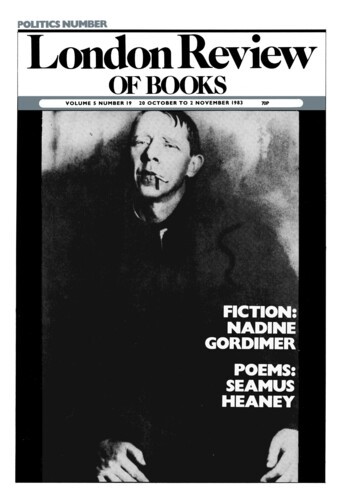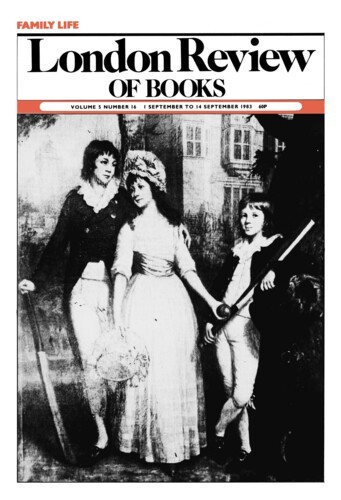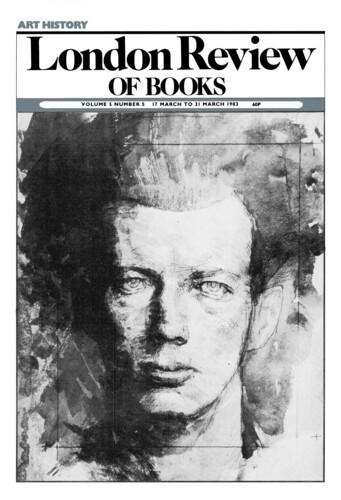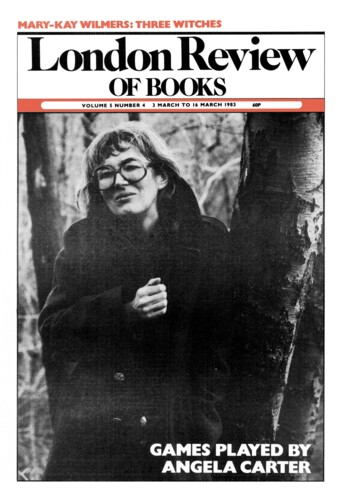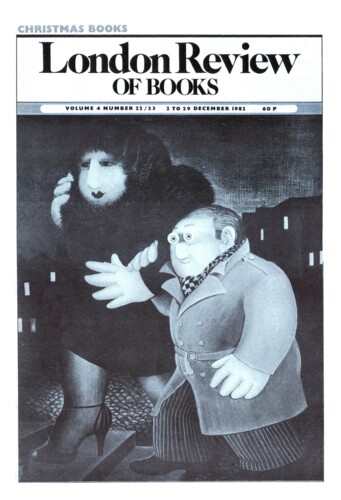Did my father do it?
C.H. Sisson, 20 October 1983
There is something to be said for the view that the subject of a biography should be dead. Death does not guarantee the truth, nor the disinterestedness of the biographer, but life surely puts some additional difficulties in his way. Certain kinds of evidence will be wilfully denied him, certain other kinds may be offered too profusely or inaccurately. The exact nature of these difficulties will vary with the biographer and with the subject. Why is a particular biography written? Is the pop star or the footballer being promoted by an advertising man or denigrated by a rival or his agent? Is the author anxious merely to sell a lot of copies of his book? Is he seriously concerned about football or pop music, and if so from what point of view? Why, if he is, does he think that a book on the player’s life will help? All these questions, or appropriate equivalents, arise in the case of a biography of a reigning monarch. The market is there – several markets indeed, and the name of Lady Longford is an indication that we are concerned with the upper end. She is not Crawfie – not so well informed on some matters perhaps, but better informed on many more. Moreover, she has come to us with the guarantees afforded by a biography of Queen Victoria, as well as a row of other studies from Jameson’s Raid to Eminent Victorian Women. She has met the Queen ‘on many occasions over the last thirty years’, so has a closer view than one who has merely been among the rabble at Garden Parties or has had to be content with what is to be seen on television. She is the daughter of a Harley Street surgeon and married to an earl, which gives a certain range of social perspectives, and both she and her husband have been active in public life, which no doubt gives others. She is a Roman Catholic, which has a number of consequences for her view of the monarchy.–
